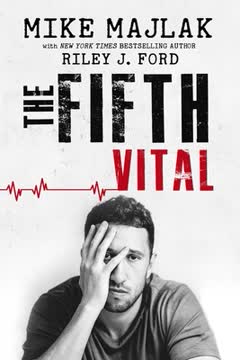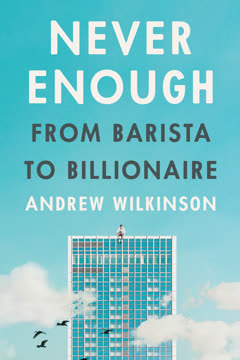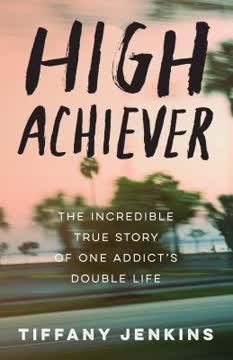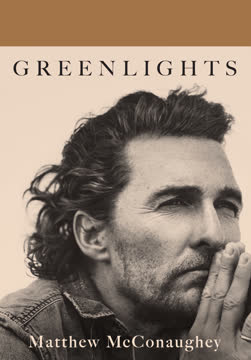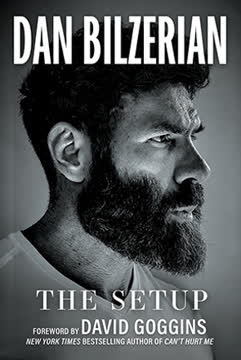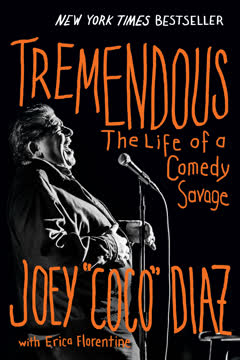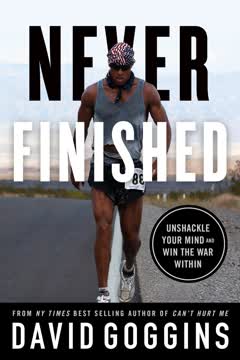Key Takeaways
1. The Opioid Epidemic's Insidious Grip
The promise of drugs—opioids in particular—was to release the American people from their pain and suffering. Instead, opioids have become a death sentence for countless human beings.
A national tragedy. In the 1990s, Purdue Pharma aggressively marketed OxyContin, a powerful painkiller, as safe and non-addictive, leading to its classification as the "fifth vital sign" in 2001. This unleashed a tidal wave of addiction across the U.S., including Mike Majlak's middle-class hometown of Milford, Connecticut. The drug's widespread availability and the lack of awareness about its dangers created a perfect storm, transforming ordinary teenagers into addicts.
Personal introduction to opioids. Mike's first encounter with powerful opioids wasn't recreational but medical. At age fifteen, a severe basketball injury led to a ruptured spleen and internal bleeding, requiring emergency surgery. The excruciating pain was managed with liquid morphine, then Percocet, and later, after a post-surgical relapse, a self-managed morphine drip. This early exposure to the numbing euphoria of painkillers inadvertently "cracked open the door" for future addiction.
The true cost. The opioid crisis quickly escalated, with overdose deaths from painkillers, heroin, and synthetics like fentanyl surpassing car and gun fatalities annually. By 2017, it was the leading cause of accidental death in the U.S., claiming nearly a million lives between 1999 and 2019. This epidemic disproportionately affected young people, devastating families and communities, and lowering the average life expectancy in America for years.
2. Descent into Addiction: From Pills to Heroin
All the days of “optional use” and “getting high” were now behind us. In just a few short months of use, my friends and I had to use every single day just to avoid feeling sick.
Recreational experimentation. Mike's initial drug use began with marijuana in high school, fueled by a desire for acceptance and rebellion after his parents' divorce. However, the true turning point came with OxyContin. Having experienced its pain-relieving effects in the hospital, Mike was intrigued when a friend introduced him to recreational sniffing of the 80mg "green pill." The instant euphoria and complete eradication of anxiety were unlike anything he'd felt before.
Rapid dependency. What started as a casual experiment quickly spiraled into daily necessity. The time-release seal of OxyContin was easily bypassed, allowing for an immediate, potent high. Within months, Mike and his friends were no longer using for fun but to stave off agonizing withdrawal symptoms—sweating, body aches, nausea, and intense anxiety. This physical dependence transformed their lives, making daily use mandatory.
The heroin bridge. As Purdue Pharma began to pull OxyContin from the market, a new, cheaper, and equally potent substitute emerged: heroin. For addicts already dependent on opioids, the transition was seamless. Mike, along with his closest friends Jeff, Kenny, and Alex, found themselves drawn into the inner-city drug trade of Bridgeport and New Haven to secure their fixes. Mike's first line of heroin marked a point of no return, erasing any remaining "rules" he had about drug use.
3. The Perilous Life of a Drug Dealer
I often wondered, “How did I get here?” But then I pushed away this distracting self-reflection and continued down the path I’d chosen for myself. Except…I hadn’t really chosen it. In many ways, it had chosen me.
From class clown to kingpin. Mike's natural charisma and "class clown" persona, combined with his father's marketing lessons, made him a natural drug dealer. He quickly moved from selling small quantities of weed to pounds, then to hundreds of OxyContin pills, and eventually to heroin and cocaine. The allure of money, power, and the "urban culture" glorified in rap music fueled his ambition, making him one of the biggest suppliers in his area.
The dark side of the hustle. The life of a drug dealer was fraught with danger and moral compromises. Mike witnessed and participated in:
- Violence: Pistol-whippings, beatings, and the constant threat of armed robbery.
- Betrayal: Suppliers stealing his customers, friends turning on each other.
- Legal repercussions: Multiple arrests, felony charges, and the constant fear of prison.
- Exploitation: Girls exchanging sex for drugs, leading to heartbreak and shame.
Self-destruction and enabling. Despite the thousands of dollars flowing through his hands, Mike's profits were consumed by his own escalating addiction. He broke the cardinal rule of dealing: "never get high on your own supply." His family, particularly his grandmother, unknowingly enabled his destructive lifestyle by providing money and shelter, further straining family relationships and deepening Mike's cycle of addiction.
4. Rock Bottom: A Forced Reckoning
I was completely defeated. No matter how much I wanted to get off drugs or how much the thought of dying scared me, I was even more frightened of stopping.
Escalating consequences. Mike's life spiraled into a relentless cycle of trauma and despair. He faced:
- Legal battles: Multiple felony arrests for possession and reckless driving, leading to a conviction and a five-year suspended sentence.
- Physical injuries: A shattered ankle (fibula bone protruding), a car crash (face smashed, concussion), and extensive road rash from being thrown from a moving car.
- Moral decay: Smoking crack cocaine while caring for his ailing grandfather, a moment he describes as his "lowest."
- Loss of support: His family, exhausted by his repeated betrayals, began to give up on him, leaving him isolated and contemplating suicide.
The ultimate tragedy. The death of his childhood friend Ashley Kaufman from a heroin overdose, a bright college graduate on the cusp of law school, served as a stark reminder of addiction's indiscriminate cruelty. This event, coupled with the murder-suicide of his best friend Jeff's mother, Caddie, profoundly affected Mike, highlighting the devastating impact of the drug world on innocent lives.
An unexpected intervention. Despite his deep-seated fear of withdrawal and failure, Mike's path to change was initiated by an external force. His new probation officer, Ellen, delivered an ultimatum: enter detox immediately or face five years in prison for probation violation. This decisive intervention, coupled with his profound exhaustion and a flicker of hope, finally pushed Mike to confront his addiction.
5. The Grueling Path to Sobriety
The pain won’t last forever. Just hang in there, Mike. Stick it out and you will come out the other side. You can do this.
Detox and rehabilitation. On June 22, 2010, Mike entered the Southern Central Rehabilitation Center, enduring five days of "gruesome pain and suffering" from opioid withdrawal. This was followed by a voluntary 45-day inpatient stay at Connecticut Valley Hospital. This structured environment, filled with meetings, group discussions, and counseling, forced Mike to confront his past and take responsibility for his actions.
Physical and mental transformation. Rehab revealed the extent of the damage Mike had inflicted on his body. He weighed 280 pounds, was dangerously obese, and suffered from high cholesterol and severe dental decay. The journey to sobriety became a journey of physical and mental rebuilding:
- Weight loss: Through diet and exercise, he lost nearly 100 pounds, going from 280 to 184 pounds.
- Clarity: His brain, once clouded by drugs, began to clear, offering a "sense of clarity that I hadn’t had in a decade."
- Self-reflection: Journaling and meditation helped him process trauma, guilt, and regret, leading to a systematic breakdown and rebuilding of his identity.
Overcoming skepticism. Despite the challenges, Mike found strength in his family's renewed support and his own growing determination. Even when the head of the rehab center, Bernadette, expressed skepticism about his long-term sobriety, Mike left with an "indescribable" feeling of clarity and purpose, committed to reshaping his life.
6. Rebuilding a Life: Purpose and Connection
If you just keep doing the right thing, good things will happen to you. That’s just the way the world works, Mikey.
Starting from scratch. Released from rehab at 25, Mike faced immense challenges: no job, no work experience, a felony conviction, bad credit, and no car. His primary goal was to stay sober, a full-time job in itself. He immersed himself in NA/AA meetings, battling deep depression, loneliness, and regret.
Finding purpose in caregiving. His mother, seeing his struggles, offered him a lifeline: move in with and care for his ailing grandfather, Pop-Pop, who suffered from Parkinson's, cancer, and dementia. Despite initial hesitation and past guilt, Mike embraced this responsibility. Caring for Pop-Pop taught him humility, compassion, and patience, giving him a new perspective on the preciousness of life.
New passions and opportunities. Mike's commitment to health led him to cycling, which helped him manage depression and anxiety. He lost significant weight and adopted a clean diet. This newfound discipline and his improved reputation opened doors:
- Milford Patch: He landed a job writing and reporting for a local news website, repairing his name in the community.
- Jay-Z at Carnegie Hall: His sister Lillian rewarded his sobriety with a trip to see his idol, a powerful symbol of how far he'd come.
- Stopping alcohol: He made the independent decision to stop drinking completely, realizing it hindered his personal growth.
7. Redemption Through Giving Back
I thought about inner strength, perseverance, and never giving up. But most of all, as that tape burst open and my family ran toward me with open arms, I thought about redemption.
Grief and renewed commitment. Pop-Pop's passing was a profound loss for Mike, filled with regret over the years addiction had stolen from their relationship. However, his mother's words—"The only reason he made it as far as he did is because of you"—validated his efforts and strengthened his resolve to live a life of purpose.
A new calling. Inspired by his experience caring for Pop-Pop and his own recovery, Mike sought ways to help others. He found this opportunity through the Connecticut Challenge, a 50-mile charity bike ride for cancer survivors. Riding in honor of Pop-Pop, he surpassed his fundraising goal and completed the challenging route, feeling an immense sense of redemption as his family cheered him on.
Mentoring the next generation. This experience solidified Mike's calling to work with struggling young people. He began mentoring teenagers and young adults in Milford who were on the path of drug abuse, offering guidance and hope. The profound impact of his words on these kids, some contemplating suicide, confirmed that he had found a meaningful way to give back and make a difference.
8. The Power of Unwavering Support
The family who had every reason to turn their backs on me did the exact opposite. My mother’s eyes filled with tears when I told her I was going to get help.
A lifeline in darkness. Throughout Mike's darkest years of addiction, his family, despite immense pain and disappointment, never completely abandoned him. His mother's persistent pleas for him to seek treatment, his father's unwavering belief in his ability to change, and his sisters' love provided a crucial, albeit often ignored, safety net.
Rebuilding trust and connection. Once Mike committed to sobriety, his family rallied around him, offering unconditional love and support. This included:
- Emotional comfort: His mother's soothing words during detox, his father's "I'm proud of you," and Gabby's compassionate listening during his struggles with anxiety.
- Practical assistance: His mother driving him to meetings, offering him a home, and helping care for Pop-Pop. Lillian providing him with a job and a place to live.
- Shared experiences: Celebrating milestones like Gabby's wedding and the Jay-Z concert, rebuilding bonds that addiction had severed.
The foundation of strength. Mike realized that human connection was one of the most powerful antidotes to suffering. His support network was instrumental in his recovery, teaching him that "we as humans are only as strong as the people around us." This realization fueled his desire to be that support for others, understanding that true change often requires both internal commitment and external encouragement.
9. Navigating New Success and Enduring Temptations
The scenarios that most men fantasize about their entire lives and never attain offered me no satisfaction whatsoever anymore.
A new career path. After years of rebuilding, Mike landed a job as a social media specialist for Lovesac, a rapidly growing furniture company. His innate ability to connect with people and his understanding of digital trends quickly propelled him up the ranks. He forged a pivotal relationship with CEO Shawn Nelson and later with social media superstar Logan Paul, leading to viral marketing success and a move to Los Angeles.
Hollywood's allure and pitfalls. In L.A., Mike became a key figure in Logan Paul's "Team Maverick," co-hosting the "Impaulsive" podcast and launching his own successful YouTube show, "The Night Shift." This new world brought immense fame, wealth, and access to exclusive parties with celebrities and adult film stars. However, it also presented new temptations.
Managing vices on a grander stage. Despite his sobriety from opioids and alcohol, Mike still grappled with other addictive tendencies:
- Sexual deviance: Engaging in casual sexual encounters with multiple partners, including adult film stars, which left him feeling empty.
- Overeating and negative thoughts: Continued struggles with self-doubt, anxiety, and unhealthy coping mechanisms.
- Intimacy issues: Difficulty committing to relationships due to past trauma and a flawed self-image.
Mike's ability to refuse cocaine at a party with porn stars demonstrated his unwavering commitment to sobriety from hard drugs, but highlighted the ongoing battle with other vices and the constant need for self-awareness and discipline.
10. Lessons from the Journey: Growth and Gratitude
Your hard days teach you more than your easy days. Don’t forget that. I would not be the man I am today without my struggles and painful journey through addiction. And I’m proud of that man.
The ultimate catalyst. The accidental death of Mac Miller from a fentanyl overdose in 2018, an artist whose music had been Mike's solace during recovery, served as a final, powerful wake-up call. It crystallized the fragility of life and the importance of living fully and truthfully, prompting Mike to fully embrace his move to L.A. and his new path.
Core principles for a fulfilling life. Mike's journey taught him invaluable lessons he now shares with others:
- Freedom from evils: Sobriety is the bedrock for success and clarity.
- Physical well-being: Exercise releases "feel-good chemicals" to combat depression and anxiety.
- Lean on your people: Seek support from friends, family, or therapists.
- Believe in yourself: Cultivate unwavering self-belief and tenacity.
- Fake it 'til you make it: Embrace new identities and actions to become the person you aspire to be.
Hollywood wisdom and enduring gratitude. From his time in Hollywood, Mike learned to navigate criticism, avoid unnecessary reactions, and stay rooted in his true self. Above all, he lives by a profound sense of gratitude for his second chance at life, which drives his daily commitment to "be good to other people." His story is a testament to the transformative power of resilience, proving that one can not only escape the depths of addiction but flourish and find redemption.
Last updated:
Review Summary
The Fifth Vital received mixed reviews, with an average rating of 4.33 out of 5. Many readers found the memoir raw, honest, and inspiring, praising Majlak's vulnerability in sharing his struggles with addiction. However, some criticized the book's structure, editing, and organization, noting it felt rushed and jumbled at times. Despite these criticisms, many readers appreciated the insight into addiction and recovery. The book's impact varied, with some finding it eye-opening and others struggling to connect with the author's experiences.
Similar Books
Download PDF
Download EPUB
.epub digital book format is ideal for reading ebooks on phones, tablets, and e-readers.
